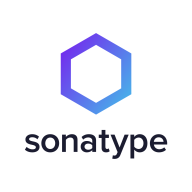

SonarQube Server and Sonatype Repository Firewall are competitive in software development and security solutions. SonarQube Server offers competitive pricing and strong ROI, while Sonatype Repository Firewall is noted for its enhanced security features.
Features: SonarQube Server provides code quality analysis, comprehensive integration with CI/CD tools, and supports multiple programming languages. It also uses unit tests and provides insights on code violations and technical debt. Sonatype Repository Firewall features open source security management, real-time vulnerability protection, and policy enforcement to safeguard software dependencies.
Room for Improvement: SonarQube Server could improve by simplifying its deployment model and enhancing commercial licensing for cloud environments. It might also focus more on security vulnerability tracking. Sonatype Repository Firewall could benefit from expanding its cost-effectiveness for small and medium-sized businesses and further enhancing user experience in dashboard functionalities. Its open source intelligence features could be made more accessible for diverse development environments.
Ease of Deployment and Customer Service: Sonatype Repository Firewall is praised for its streamlined deployment and strong customer support, reducing integration time significantly for organizations. SonarQube Server has a more complex deployment but offers extensive community support and documentation, making it manageable for those leveraging community resources.
Pricing and ROI: SonarQube Server is recognized for its affordable and scalable pricing options aligning with varied organizational needs, enhancing its ROI, especially where code quality is the focus. Sonatype Repository Firewall's pricing is higher, justified by its advanced security features, appealing primarily to organizations prioritizing security over cost.


SonarQube Server enhances code quality and security via static code analysis. It detects vulnerabilities, improves standards, and reduces technical debt, integrating into CI/CD pipelines.
SonarQube Server is a comprehensive tool for enhancing code quality and security. It offers static code analysis to identify vulnerabilities, improve coding standards, and reduce technical debt. By integrating into CI/CD pipelines, it provides automated checks for adherence to best practices. Organizations use it for code inspection, security testing, and compliance, ensuring development environments with better maintainability and fewer issues.
What are the key features of SonarQube Server?Many industries implement SonarQube Server to uphold coding standards, maintain security protocols, and streamline their software development lifecycle. In sectors like finance and healthcare, adhering to regulations and ensuring reliable software is critical, making SonarQube Server invaluable. It is often integrated into CI/CD pipelines, ensuring that code changes meet set standards before deployment. This approach enhances productivity and maintains compliance with industry-specific requirements.
Sonatype Repository Firewall is a cloud-based security solution designed to safeguard your software supply chain against malicious components. It operates by meticulously scanning and evaluating each new component against customized governance policies, thereby effectively identifying and blocking potential threats before they infiltrate your development pipeline. What sets Sonatype Repository Firewall apart is its user-friendly setup, seamless integration with existing workflows, and remarkable scalability, making it suitable for software development environments of any size. Key features include blocking malicious components through behavioral analysis, malware scanning, and vulnerability assessment, as well as the ability to enforce custom governance policies. By utilizing this tool, organizations can enhance their software supply chain security, mitigate risks related to supply chain attacks, bolster compliance with industry standards, and ultimately reduce costs associated with security incidents.
We monitor all Application Security Tools reviews to prevent fraudulent reviews and keep review quality high. We do not post reviews by company employees or direct competitors. We validate each review for authenticity via cross-reference with LinkedIn, and personal follow-up with the reviewer when necessary.